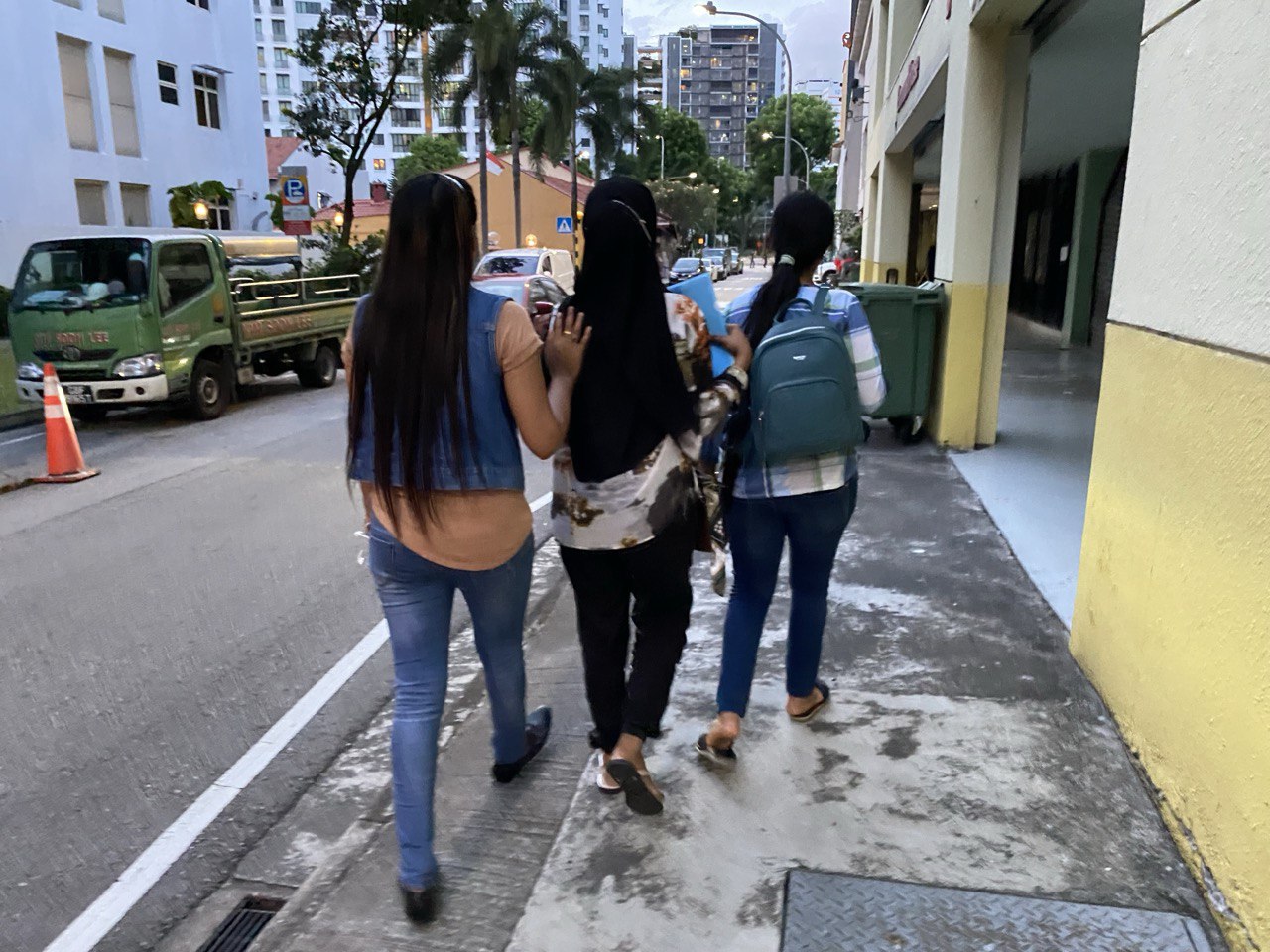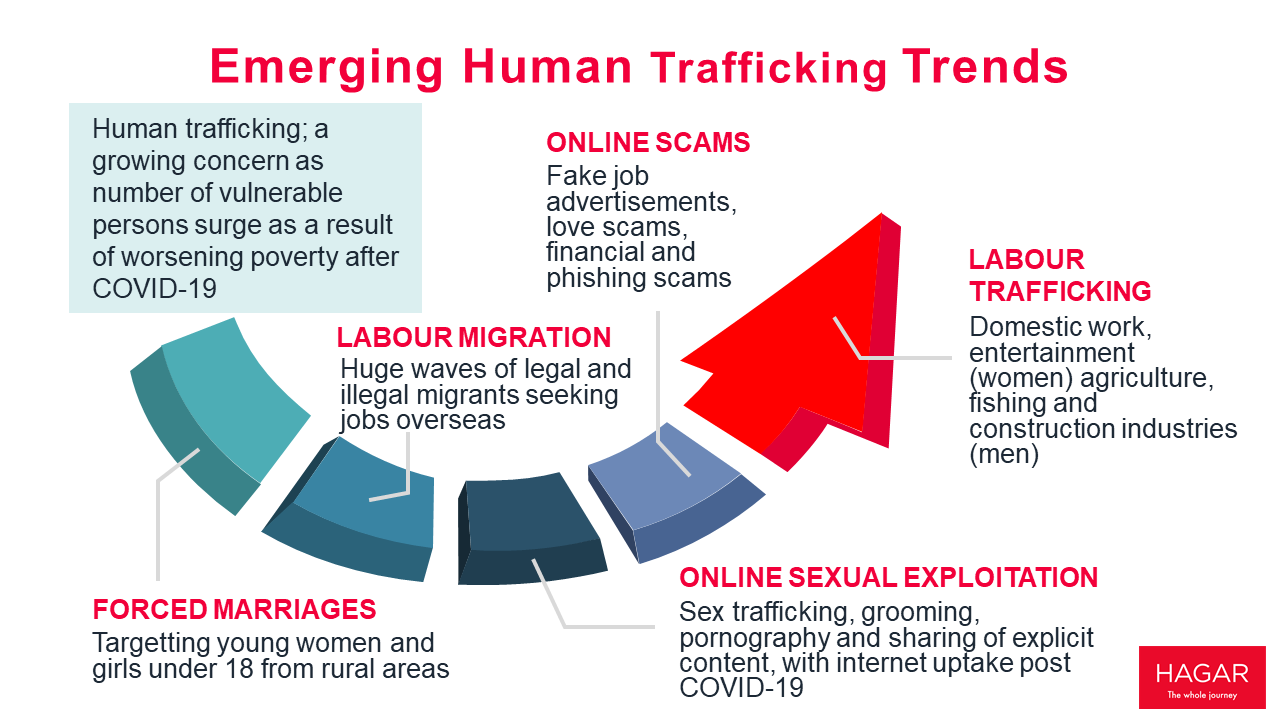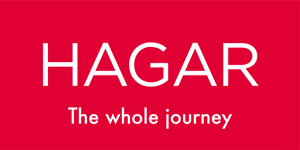“Singapore has tip-top border controls, there’s no way human trafficking can happen here.”
“These people cannot be true victims. If they are really trafficked, why don’t they go to the police?”

This year, HAGAR also supported the Government in the screening of alleged trafficking cases, particularly foreign women who entered Singapore on a performing artiste work permit. Desperate for survival, these young women came to Singapore with hopes of building a livelihood that can promise them any chance of a better life for their families. Deceived by job scams and exploited, they struggle to break free from the chains of abuse, isolation and debt bondage.
With fewer regular means for migration post-pandemic and the lack of opportunities for safety and prosperity at home, already vulnerable migrants are facing even greater desperation, making them prime targets for trafficking syndicates.
Human trafficking has become a growing concern as the number of vulnerable persons surge as a result of worsening poverty in recent years. Across our Hagar offices in Asia, we see 5 disturbing trends emerging in the region.

From 2024, HAGAR will bring into sharp focus strategic upstream measures to prevent human trafficking, slavery and abuse. Through the development of digital awareness initiatives, and strategic partnerships with governments, community leaders, businesses, and the private sector, we aim to multiply our impact and reach thousands more vulnerable migrants who are living on the margins of society.
Help us transform lives
Join HAGAR to empower survivors of trafficking and abuse to start a new life.
Help us transform lives
Join HAGAR to empower survivors of trafficking and abuse to start a new life.
Help us transform lives
Join HAGAR to empower survivors of trafficking and abuse to start a new life.
